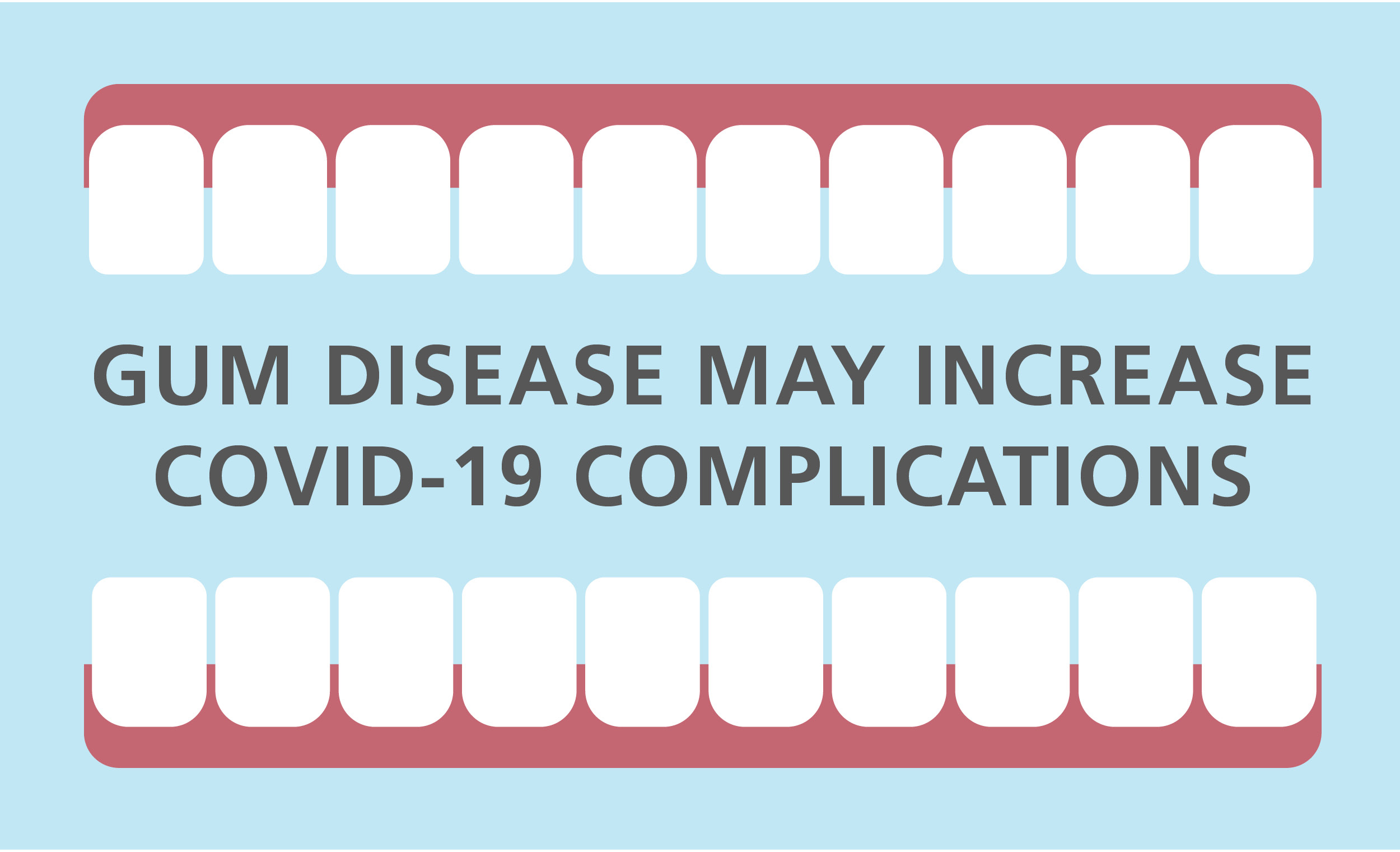
Gum disease may increase COVID-19 complications
Dental health has long been linked to overall health, and now new research indicates COVID-19 patients with gum disease are more likely to experience complications than those without gum disease.
In a study published in the online Journal of Clinical Periodontology, researchers found that COVID patients with gum disease were more likely to suffer serious medical complications, including being:
• 3.5 times more likely to be admitted to intensive care
• 4.5 times more likely to need a ventilator
• Nearly nine times more likely to die compared to those without gum disease.1
Gum disease or periodontal disease causes inflammation in the body. Inflammation is your body’s natural response to an injury or infection. To fight the infection caused by gum disease, your body makes cells called neutrophils. While they work great on gums, your body makes too many of them and they travel throughout your system looking for other infections. This causes your immune system to respond with too much force to any secondary infection like heart disease or COVID-19. This is dangerous because the neutrophils destroy tissue around the affected areas. In the case of COVID-19, this heightened immune response leads to more severe symptoms.
“We now know that gum disease is directly linked to heart disease, diabetes, stroke and respiratory diseases, so it’s understandable that gum disease also contributes to more serious COVID-19 symptoms,” said Dr. Robert Crim, Chief Dental Officer, Smile Brands Inc. “Therefore, it’s important for patients to understand that good oral health may reduce the risk of severe COVID-19 symptoms.”
Gum disease is the result of a process that develops over time. In its early stages, plaque that is not brushed away builds up on teeth. The bacteria in the plaque irritates the gums, making them swollen, sore, or infected. This leads to gingivitis, a condition that is usually reversible. However, when it is not stopped at this stage and is left to develop, it progresses to gum disease.

Gum disease can cause bleeding gums, bad breath and even tooth loss. According to the U.S. Centers for Disease Control and Prevention, up to half of U.S. adults aged 30 and older have some form of gum disease.2
Typically, gum disease can be prevented by maintaining good oral health habits. Treatment often requires an in-office visit to your dentist and hygienist.
Steps to prevent gum disease:
• Regular dentist visits. It is important to visit for your dentist twice a year. During your examination, your dentist will evaluate your gums.
• Cleaning in between your teeth by flossing every day.
• Brushing at least twice a day.
If you are diagnosed with gum disease, your dentist will develop a treatment plan. Treatment could include periodontal therapy like scaling and root planing, and even the use of lasers.
Along with brushing and flossing, regular visits to your dentist are important to your overall health. Be sure to schedule your teeth cleaning and dental exam today.
1. Journal of Clinical Periodontology 2021 February 1.
2. Eke PI, Dye B, Wei L, Thornton-Evans G, Genco R. Prevalence of Periodontitis in Adults in the United States: 2009 and 2010. J Dent Res. Published online 30 August 2012:1–7.

